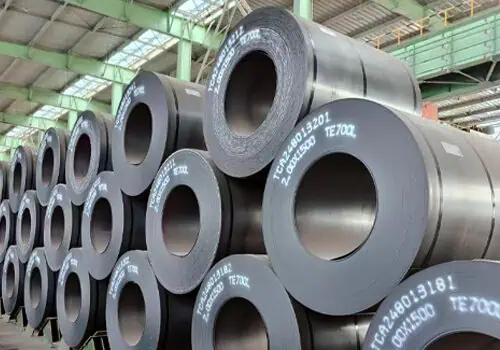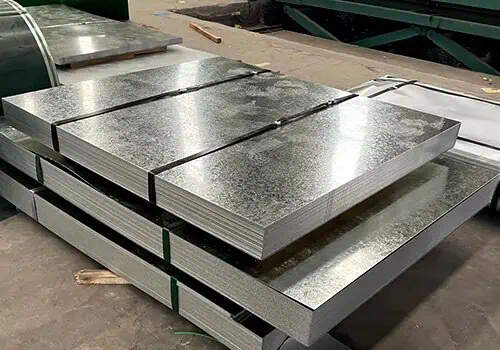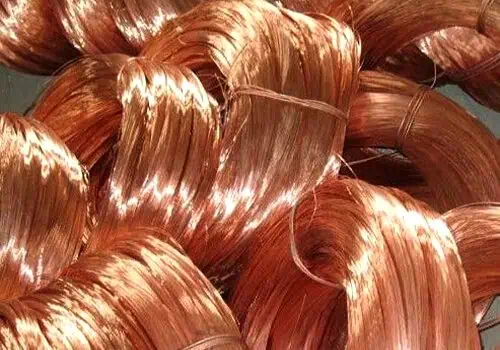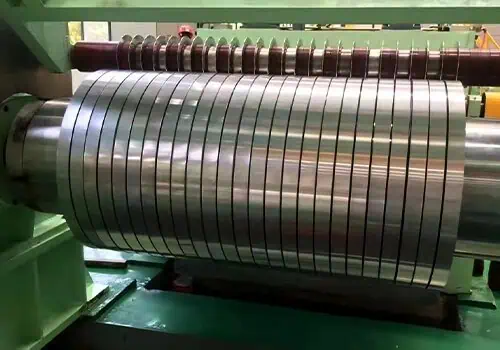Confused about what are steel coils used for? You might be missing out on a major business opportunity. Learn how these adaptable materials dominate modern industries and drive global riches.
Steel coils are vital across construction, avtomobil, home appliance, and industrial sectors. Their durability, formalaşma qabiliyyəti, and corrosion resistance make them ideal for manufacturing, roofing, and infrastructure. Understanding how to use and source them effectively can give you a serious edge in today’s competitive global supply chain.
Let us now look at the top ten applications and information concerning metal coils.
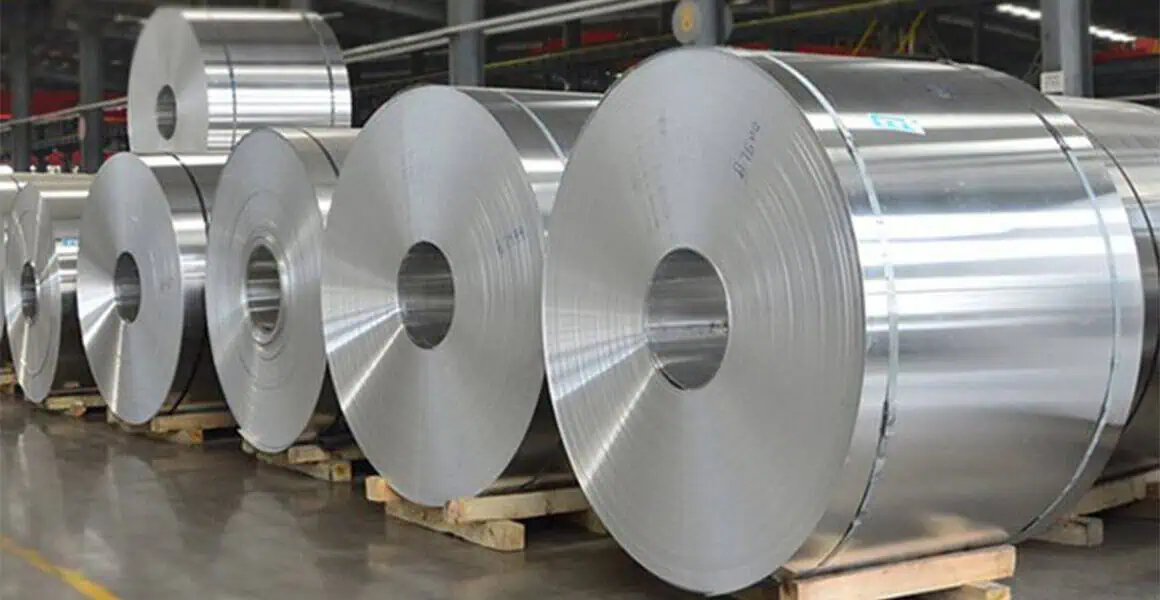
Where Do You Use Steel Coil?
Steel coils are utilized in practically every sector that requires durability, çeviklik, or thermal and electrical conductivity. They may be found in factories, construction sites, automotive plants, food packaging operations, and even aerospace workshops. Their form factor facilitates transportation and subsequent processing, allowing businesses to decrease expenses and increase production.
The versatility of steel coil makes it important in a variety of applications, including HVAC systems and beverage cans. In logistics, they are used to frame containers. Pre-coated steel coils are used in domestic appliances such as refrigerators and ovens. Because of their excellent thermal conductivity, aluminum coils are commonly used in heating and cooling systems.
We provide a variety of options, including cold-rolled, hot-rolled, və sinklənmiş polad rulon materials designed for certain project types. Whether you require structural durability or ornamental finishes, we can help you find the right product at the right price.
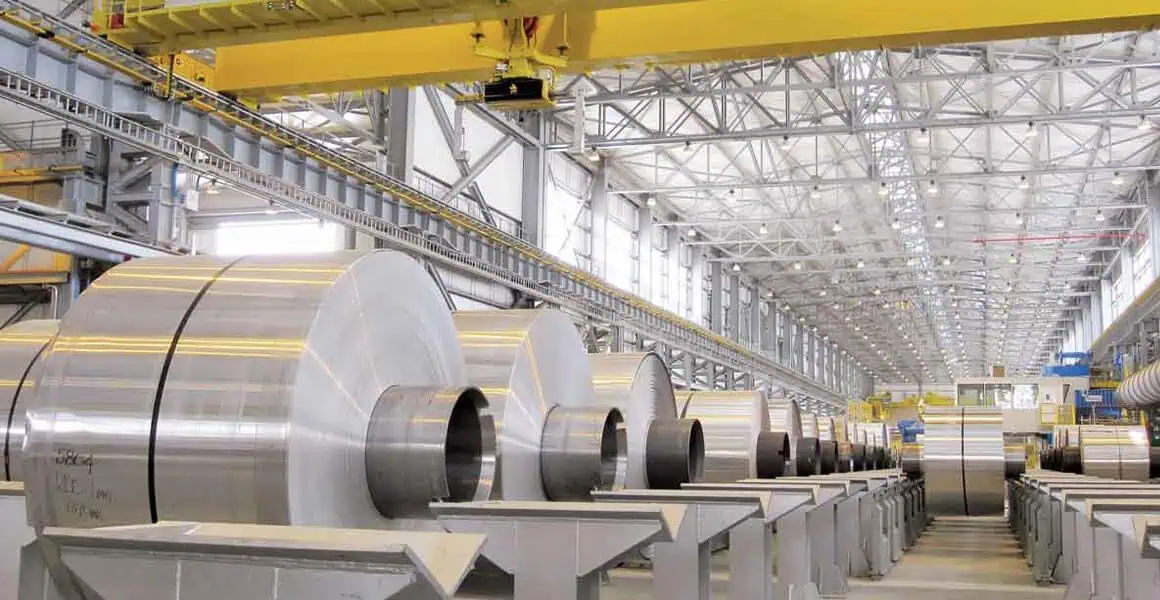
What Industries Use Steel Coils?
Steel coils are the silent backbone of many enterprises, whether you know it or not. Coils of metal are used in several industries, tikinti daxil olmaqla, electrical, mechanical, transportation, agricultural, və istehsal. Their physical and chemical qualities make them appropriate for a variety of applications.
Steel coils are utilized in the building of floor decks, stairs, purlins, and structural beams. They are used in the automotive industry to make vehicle bodies, frames, and undercarriages. These are used by electrical appliance makers to build casings, brackets, and insulating frames. Even the food business employs stainless steel coils to create sanitary processing equipment.
Yuanchi offers industry-specific certifications that help you fulfill technical specifications and quality inspection requirements, lowering risk and increasing ROI.
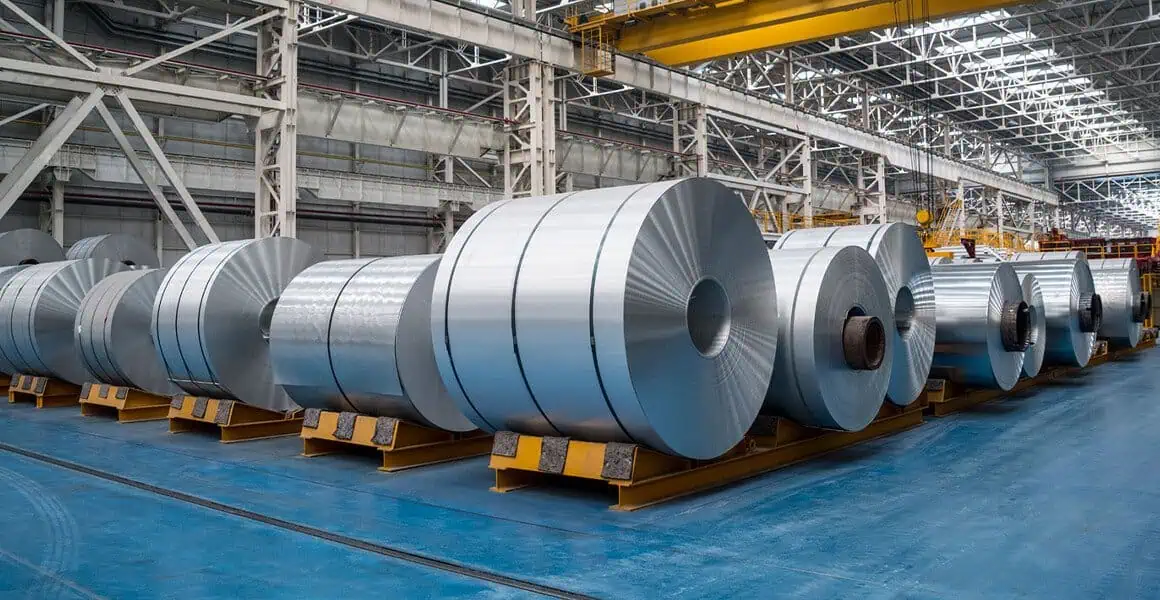
What Are the Uses of Steel Roll Coil?
The term “steel roll coil” refers to steel in its rolled form following hot or cold processing. These coils are used to make pipelines, ship components, oil barrels, vehicle frames, railroad tracks, and even fences. Their flexibility and mechanical strength make them suitable for both load-bearing and aesthetic purposes.
Hot-rolled coils are less expensive, have scale on the surface, and are employed in larger constructions like as ship hulls or bridges. Cold-rolled coils provide a superior surface polish and are commonly used in furniture, precision electronics, and automobile panels. The option is based on whether you require visual attractiveness or sheer strength.
Yuanchi has a large inventory of both types since it serves customers in both the infrastructure and consumer products industries. We also assist purchasers understand the differences, weighing performance against steel coil price, delivery time, and project specifications.

What Is Done With Steel Coils?
Steel coils undergo various phases before being employed in a finished product, including decoiling, slitting, leveling, shaping, və ştamplama. These techniques assist to form and size the raw material for usage in components, panels, or systems.
Slitting cuts coils of metal into thinner strips, while leveling flattens the coil for smooth finishing. Some clients demand circular stamping for lids or flat panels for doors. Coils can also be corrugated or roll-formed for use in building and ventilation.
Yuanchi invests in precision processing lines to suit customer needs. Whether you need 0.5mm thick aluminum or 3mm heavy-duty steel coils, we offer precise cutting, qablaşdırma, and transportation to ensure smooth downstream operations. We also provide video previews and quality reports before shipment.
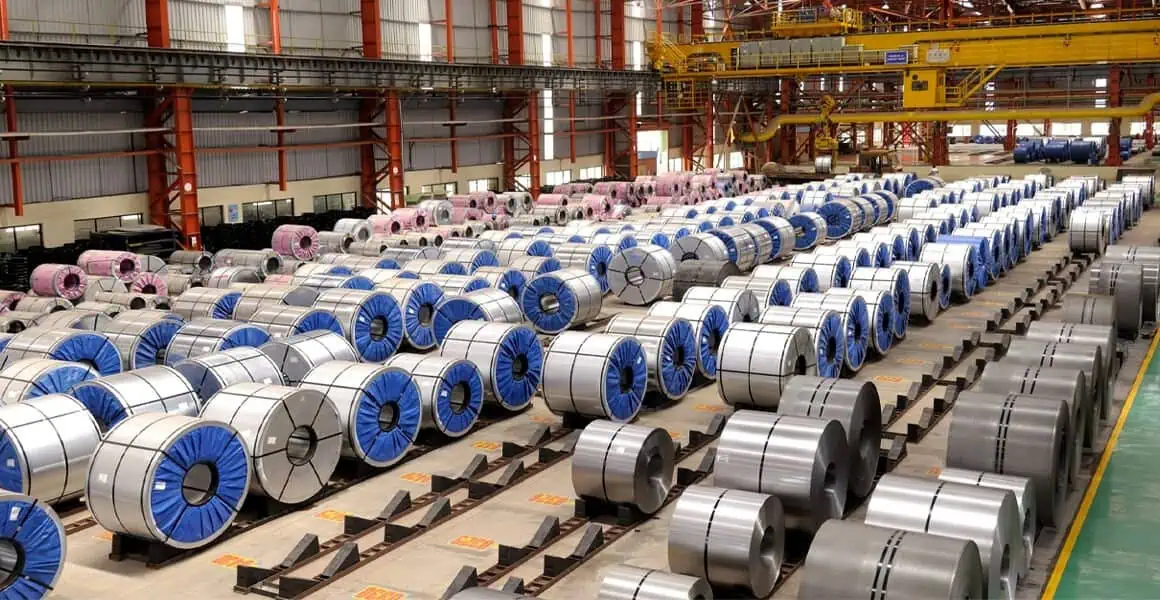
Why Are Steel Coils So Heavy and Dangerous?
A complete steel coil weight weigh 10 üçün 30 tons, depending on size and material type. Mishandling them when loading or unloading might lead to serious accidents or losses. That is why safety is one of the most often addressed issues among overseas purchasers.
Improper lifting or stacking may cause the coil to move or collapse. Over the years, we’ve seen several importers face delivery delays or even litigation as a result of suppliers’ negligent loading. Yuanchi eliminates such hazards by including reinforced wood saddles, anti-slip pads, and steel straps with every coil of steel we ship.
Shipping conditions at high-volume ports in South America and Southeast Asia can be harsh. We ensure that all steel coils are loaded with a center-of-gravity plan and specific shipping instructions. This decreases the risk of customs damage or detention.

What Are Steel Coils Used For in Construction?
Construction is a major user of steel coils. Because of their great tensile strength and corrosion resistance, they are commonly employed in buildings, bridges, prefabricated homes, and roadways.
Common uses include roofing, divar örtüyü, purlins, beams, HVAC ducting, and concrete reinforcement. Galvanized steel coil is particularly popular because it resists corrosion in humid or coastal areas, making it ideal for usage in countries such as Peru, Brazil, and the Philippines.
We ship thousands of tons of construction-grade steel coils each year. With certifications such as ISO9001, CE, and SGS, we assist our customers in winning government bids, construction tenders, and long-term supply contracts from developers. We also provide OEM branding and custom color coating.
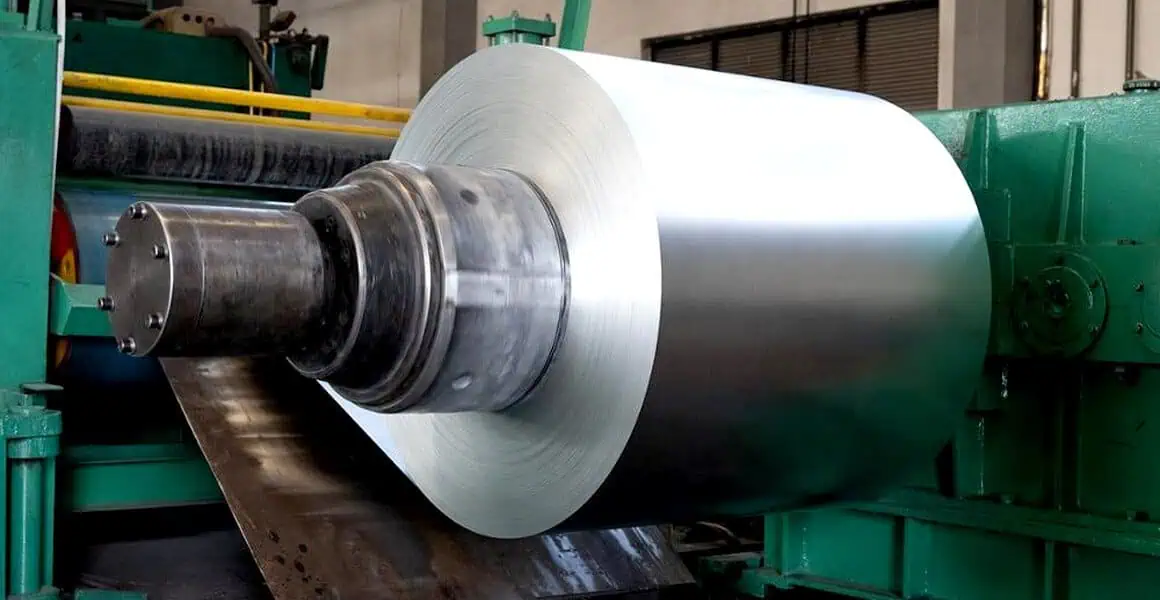
How Are Steel Coils Unrolled and Processed?
To utilize steel coils, companies must first uncoil the metal and then process it with equipment that level, slice, and bend it into useful shapes. These procedures are automated in contemporary facilities, resulting in higher throughput and fewer material waste.
Unrolling needs specialized decoilers that safely hold and spin the coil. After that, it may be cut to length or punched into pieces. What was the result? In minutes, raw material is transformed into precisely sized panels, boru kəmərləri, zol, or components. This quickness is critical in fast-paced production operations.
Yuanchi offers decoiling services for customers who lack the necessary equipment or want ready-to-use parts. Customized processing reduces scrap, saving both money and time. From galvanized steel coil to aluminum coil, we have solutions for any need.
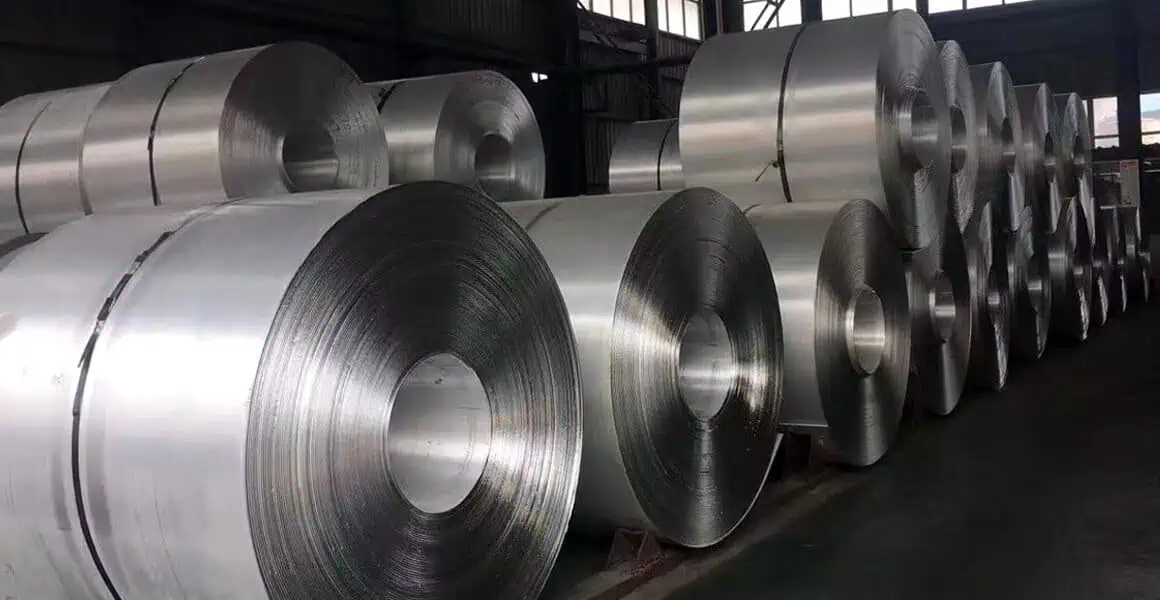
Why Is Steel Made in Coils?
Why coil at all? Coiling assists steel manufacturers and consumers in increasing efficiency across all aspects of manufacturing, storage, and transportation. It can handle thousands of meters of steel as a single unit.
Coiled steel takes up more than 60% less storage space than flat sheets. It also makes loading into roll-forming or stamping equipment considerably easier. This is a game changer for firms with big volume operations.
Producers like us save money on packaging and make loading containers easier by selling steel coils rather than flat sheets. Importers also benefit from more efficient container space use and easier inventory management. That is why practically all exported metal coils are tightly coiled.

How Hot Do Steel Coils Get?
During hot rolling, the steel slab can achieve temperatures of up to 1,100°C (2,012°F). This makes it simpler to form thin sheets that are then rolled into coils. Understanding this process allows purchasers to make more informed judgments about hot-rolled and cold-rolled steel coils.
Hot-rolled metal coils have scale and a coarser texture, but they are cheaper and faster to create. Cold-rolled coils, on the other hand, undergo many passes before being annealed, resulting in a superior finish, tighter tolerance, and a greater cost.
Hot-rolled coils are commonly used in structural applications. Cold-rolled coils are best suited for precision appliances and interior goods. Yuanchi explains all of these technical issues before pricing, ensuring that our customers do not overpay or underbuy.
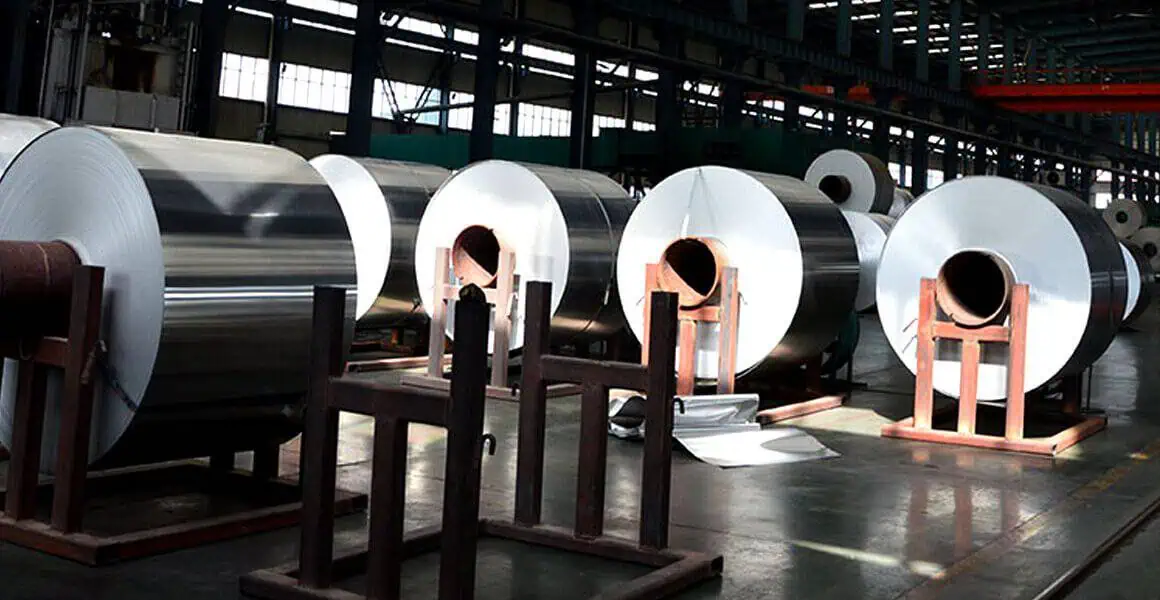
Can Steel Coils Rust?
Bəli, rust is a major problem for anyone working with steel coil, particularly during maritime exports or storage in humid areas. Without adequate coating or packing, a coil of steel can oxidize in a matter of days.
To prevent this, we use galvanized steel coil, which is zinc-coated to withstand corrosion. We also provide oil-coating, PE wrapping, plastic sealing, and desiccant-packed containers to help increase shelf life.
Color-coated coils are particularly recommended for clients in tropical countries such as Malaysia and coastal zones in Chile, since they provide an additional layer of protection and beauty. To ensure transparency, all of our steel coils include packing images and quality control reports.

Summary
Steel coils power contemporary industry. Yuanchi is the right partner for bulk and on-time procurement, offering verified quality, experienced logistics, and low costs.


